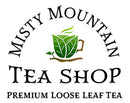A Cup of Oolong For Your Health

Oolong tea is a traditional Chinese tea that falls between green tea and black tea in terms of oxidation levels. Besides being delicious, it offers a range of potential health benefits, similar to other types of tea. Some of the benefits of oolong tea include:
-
Antioxidant Properties: Oolong tea is rich in antioxidants like polyphenols, which help combat oxidative stress and protect cells from damage. These antioxidants may contribute to reducing the risk of chronic diseases and supporting overall well-being.
-
Heart Health: Regular consumption of oolong tea has been associated with improving heart health. It may help lower blood pressure, reduce bad cholesterol (LDL), and improve overall cardiovascular function, thus decreasing the risk of heart disease.
-
Weight Management: Oolong tea has been studied for its potential to aid in weight management. Some research suggests that the combination of caffeine and catechins in oolong tea can enhance metabolism and promote fat oxidation, which may contribute to weight loss or weight maintenance when included as part of a healthy diet and exercise routine.
-
Digestive Health: Oolong tea may support digestion by promoting the breakdown of fats and aiding in the digestion of food. It has been used in traditional medicine to alleviate digestive issues and reduce bloating.
-
Mental Alertness: The caffeine content in oolong tea can provide a mild boost in mental alertness and cognitive function without the jittery effects associated with higher caffeine sources like coffee. This can help enhance focus and concentration.
-
Bone Health: Oolong tea contains minerals like calcium and magnesium, which are essential for maintaining strong bones. Regular consumption, along with a balanced diet, may contribute to better bone health.
-
Dental Health: Some research suggests that the polyphenols in oolong tea may have antimicrobial properties that could help reduce the growth of harmful bacteria in the mouth, potentially leading to improved oral health and reduced risk of cavities.
-
Skin Health: The antioxidants in oolong tea may help protect the skin from damage caused by free radicals and UV radiation. Some skincare products also use oolong tea extracts for their potential anti-aging and protective effects.

It is important to note that while oolong tea offers these potential benefits, individual responses can vary. Additionally, excessive consumption of any caffeinated beverage, including oolong tea, should be avoided, as it can lead to negative effects such as caffeine-related side effects (insomnia, restlessness, etc.) and potential interactions with certain medications. As with any dietary changes, it's advisable to consult with a healthcare professional before making significant modifications to your diet or lifestyle.



Leave a comment